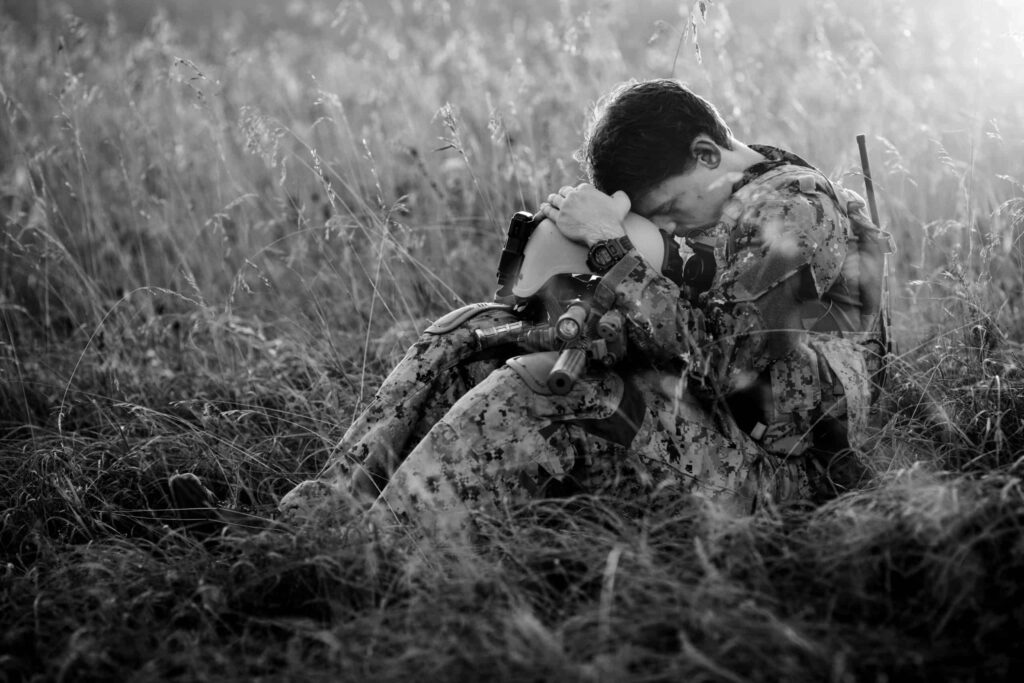Many Veterans experience extreme stress, memories from a traumatic event in the service, painful feelings from losing a friend in combat, or military sexual trauma (MST). Therefore, many Veterans who are unable to cope with their feelings and stress reach for drugs and alcohol to numb their feelings. However, these are unhealthy coping mechanisms for trauma and or negative habits that do not resolve their pain. The drinking and drug use only leads the Veteran down the road to more unhealthy coping mechanisms like self-isolation, avoidance behaviors, pushing away those who love them the most, and developing an addiction. Also, untreated trauma can lead to post-traumatic stress disorder (PTSD) in many Veterans.
Coping Mechanisms For Trauma In Veterans
When people experience stressful or traumatic events, it isn’t easy to know what to do with the feelings they experience. After all, coping mechanisms are behaviors we use to make us feel temporarily better in the face of negative emotions. In turning to negative or unhealthy coping mechanisms, we may find ourselves reaching for an alcoholic drink, using drugs, avoidant behaviors, or isolating ourselves from everyone. However, what appears temporary can sometimes turn into a habit and contain indications of addiction. In short, unhealthy coping mechanisms are easy to develop and hard to change.
What Are Healthy and Unhealthy Coping Mechanisms?
Veterans can rely on healthy coping mechanisms for trauma. For example, meditation can allow for focus and a feeling of calm. Taking some time to reflect on the positive things in life to be grateful for is helpful. Also, exercise can produce hormones in the brain to develop feelings of joy and happiness. Taking up a hobby or taking a class to learn something new can develop positive feelings of confidence and pride. Avoiding unhealthy coping mechanisms begins with being present and deciding to choose positive over negative.
Pushing out of the negative coping mechanisms can be difficult. Trauma and addiction treatment can help Veterans find healthy ways to cope with negative feelings. Feelings of helplessness, self-harm, and powerlessness can cause the negative coping mechanisms easier to reach for. Isolation can lead to mental health issues if not confronted early on. People need connection and without it, anxiety, depression, and low self-esteem can develop.
What Are Common Unhealthy Coping Mechanisms for Trauma?
Some commonly used unhealthy coping mechanisms for trauma include:
- Projection is a defensive behavior that appears as projecting your damaging behavior on others instead of seeing it in yourself.
- Denial keeps one from recognizing negative behaviors in themselves thus allowing for a false sense of security.
- Self-medicating with alcohol or drugs can lead to physical and mental health issues, overdose, and even death.
How to Change Unhealthy Coping Mechanisms
When negative coping mechanisms have led to a substance abuse problem, treatment is a positive choice to be made. Various evidence-based therapies are effective at treating trauma and PTSD. Making the decision to seek treatment is a very important positive first step. Identifying underlying causes of stress and negative feelings and working to deal with those positively is the next step.
Therapies to Reverse Unhealthy Coping
- Individual therapy: Individual therapy plan can recognize trauma and how to cope with it positively, often using cognitive behavioral therapy (CBT) or cognitive processing therapy (CPT).
- Group therapy: Sharing experiences of trauma and pain with other service personnel who had similar experiences brings a sense of connection, empathy for others and the realization that you are not alone in your struggles.
- Art therapy: Highly successful art therapy enhances the ability to form social interactions in a positive setting, helps form new communication skills, improves interpersonal skills in the future, reduces anxiety and allows for an improved ability to resolve conflict within.
- EMDR Therapy: EMDR stands for Eye Movement Desensitization and Reprocessing. This therapy was designed for people with PTSD, anxiety disorder, panic disorder and eating disorders as well as drug or alcohol addiction.
- Counseling sessions with family members: This therapy is for the Veteran and family members to improve communication and learn about mental illness. Also, this therapy explores the effects of substance abuse and how to develop a positive family environment while implementing feelings of support.
- Cognitive Behavioral Therapy (CBT): A form of therapy that can help to develop ways to manage emotions and feelings, learn healthy positive coping mechanisms, ways to cope with grief and loss, managing mental health and addiction issues, and learning how to establish healthy positive relationships.
Trauma Treatment for Veterans
Take the first step in self-care and admit you need help to overcome your substance abuse disorder. You can get trauma treatment to begin making positive and healthy decisions. Our staff of mental health professionals are here to assist you in establishing a journey into wellness and a healthy lifestyle. Contact us with your questions and let us help you receive the help you need. In conclusion, Sunrise Veterans Health would like to help you begin your journey.


